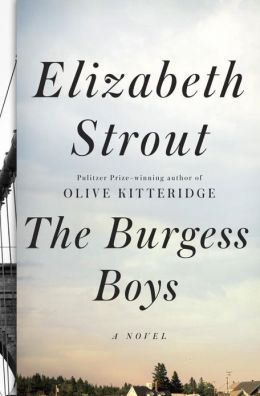Four years after winning the Pulitzer Prize in fiction for the book “Olive Kitteridge,” Portland native Elizabeth Strout is back.
Her latest novel, “The Burgess Boys,” doesn’t disappoint. This post-9/11 story of family and forgiveness, identity and dislocation, has the hallmarks of a classic and the urgency of today’s news.
The plot stems from a 2006 hate crime that shook Lewiston, where Somali families had recently migrated. In the novel’s rendition, 19-year-old Zach Olson throws the frozen head of a pig — an animal deemed unclean in Islam — through the door of a mosque in fictional Shirley Falls, Maine, where a group of Somali men are praying.
Horrified, the imam calls the police. An investigation ensues. But before Zach is arrested, his mother, Susan, calls her brothers in New York for help. They — Jim and Bob Burgess, both attorneys who long ago fled the rural Maine of their past — come to their nephew’s rescue. But not without stirring things up.
“Your Uncle Jim loves photographers,” Bob says, noting a camera’s flash as they leave the police station after Zach’s arrest. “He’ll be jealous if you take over as family media hog.”
Jim, a high-profile defense attorney, has become a household name. Nor has he forgotten his ties to Shirley Falls, a place he regards with a mixture of duty and contempt. Jim calls on a few cronies, hires an attorney for Zach, and gives a speech at the town’s rally for tolerance. His blend of brashness and eloquence gets mixed reviews.
As the brothers drive back and forth to and from Maine, their attempts to mitigate one crisis lead to another. So begins the long backward slide of adults reverting to a former life, resuming roles and resentments as if they’d never left their childhood home.
Bob, an appellate lawyer, is again the stumblebum, lacking his big brother’s charisma. He resigns himself to the litany of epithets that Jim, even in middle age, hurls at him: Slob-dog and jerkoid, knucklehead and bozo are among the fonder nicknames Bob has come to accept.
What festers beneath the brothers’s rivalry is a long-buried family trauma. When they were kids — Jim was 8, Bob and Susan were 4 — their father left them sitting in the car as he walked down the driveway to fix the mailbox. Bob was playing with the gears, and the car rolled downhill and killed their dad.
This accident widowed their young mother, left them fatherless, and went unspoken for decades. The whole town knew about it, and Bob grew up with the weight of that knowledge.
Then out of the blue, almost 50 years later, Jim mentions the accident to Bob. So begins a reappraisal of the most basic facts of their childhood. The resulting curveballs and switchbacks shatter the world as they’ve known it, rearranging their fundamental roles and identities.
“Yes, the universe tilted,” Strout writes. “It was frightening to have the safety of the self give way.”
Strout melds these two storylines — a family’s tragedy and a community’s nightmare — so that the themes of identity and otherness reverberate between them. Signs of empathy turn up where least expected.
When Susan visits New York, she’s confused by the city and its subways, even more so by her brothers’s lives there. She wonders if the Somalis have felt that same sense of dislocation in Shirley Falls.
Similarly, as Bob scans the crowd of faces at the rally for tolerance, he’s struck “with how much white people looked alike,” Strout says. He wonders whether the Somalis share his bewilderment. And even the Somali elder who faces Zach in court softens when he sees up close this sad, frightened kid.
Nor does Strout miss an opportunity to convey how language reveals us. Throughout the book, several characters abuse the word “Somalis” as a show of defiance or fear. Their slurs decline as acceptance grows.
Simpler examples abound as well. Bob, for instance, refuses to give up the term “anyways,” a bit of down-home dialect that annoys his snobbish sister-in-law.
Strout’s point in these linguistic forays is a reminder of the common humanity that informs this standout book — that we are all a patchwork of the people and places that come to shape us.
Joan Silverman is a freelance writer in Kennebunk.
Send questions/comments to the editors.



Comments are no longer available on this story